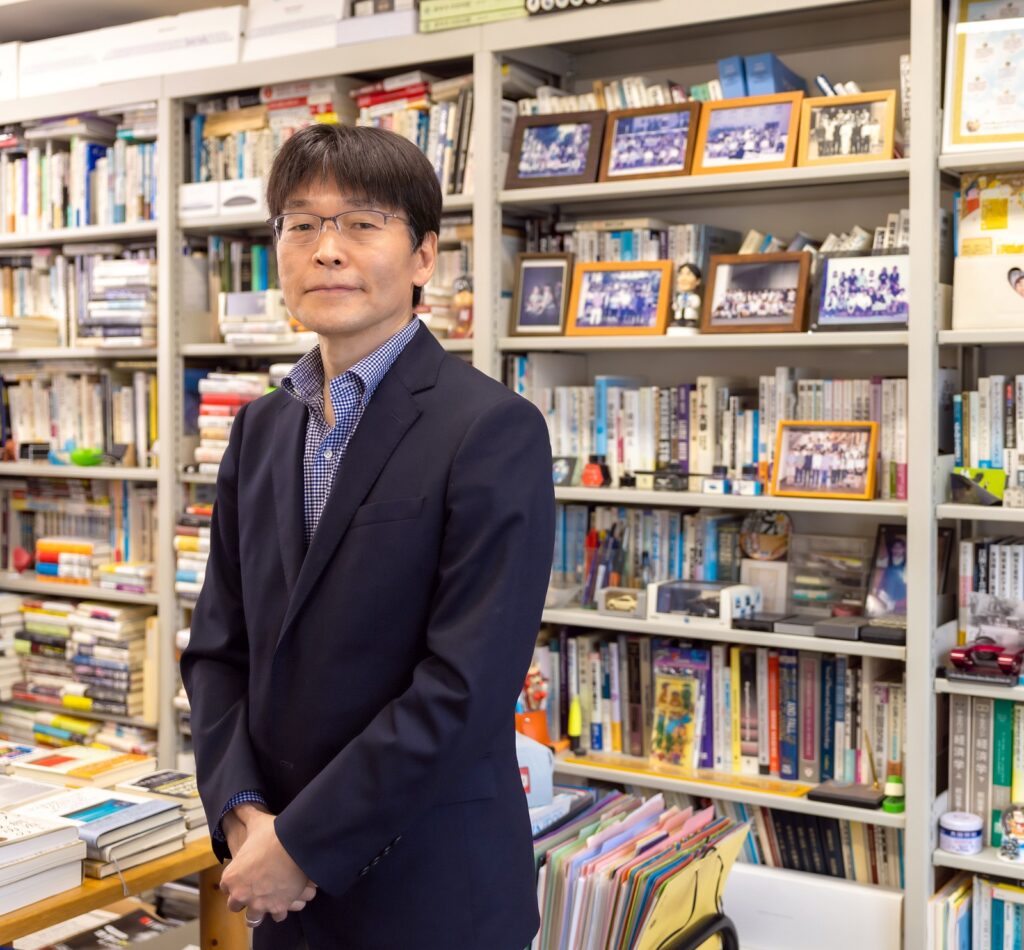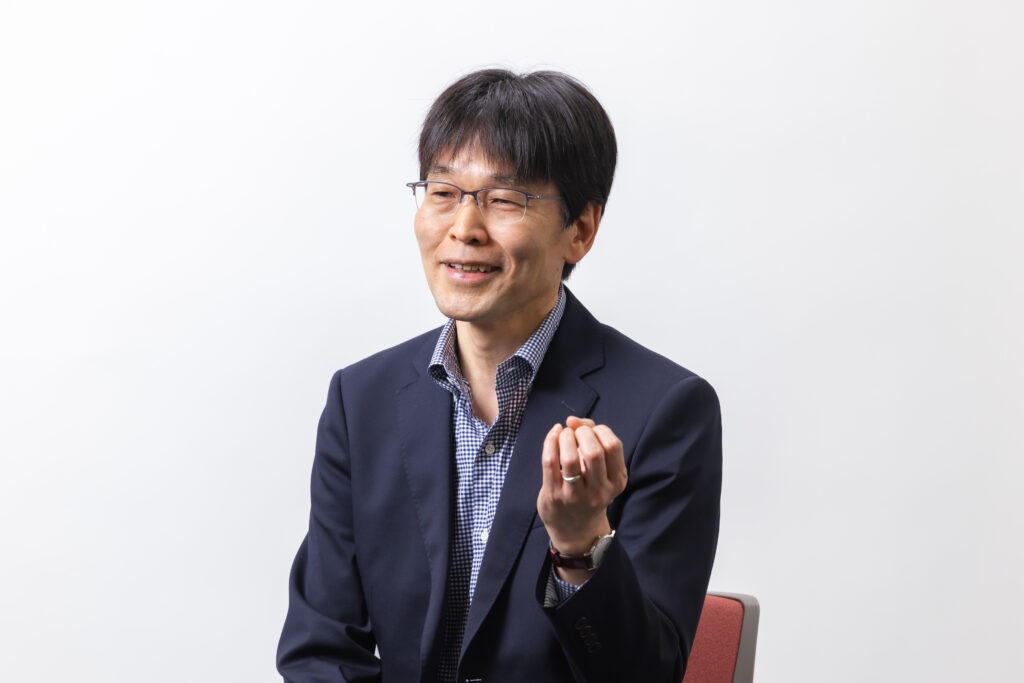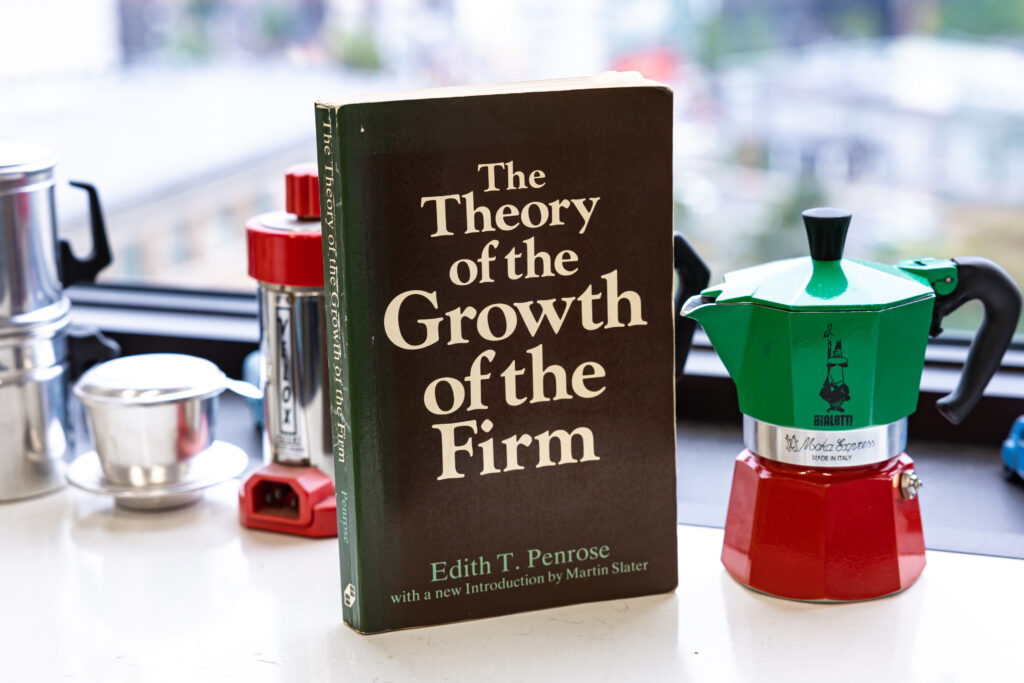
Professor Hisanaga Amikura of the Faculty of Economics specializes in strategic management, which discusses guidelines for creating new value. The smartphone is an innovative new device that has changed our lives. Why has it become indispensable to us, and how has the innovation made possible?
The meaning of “manage” is achieving something despite difficult circumstances. In management studies, we consider ways and systems for organizing activities to accomplish goals.
Strategic management theory, which is my area of expertise, is a field of research that considers basic policies for a company’s relationships with external parties—with customers, for example, or with rival companies. While focusing on a company’s external relationships, we consider what it should do in order to provide better products and services.
New products and services create new values. Let us take as an example the smartphone, which is a relatively new product. Since the launch of the first-generation iPhone in 2007, the product has prevailed rapidly—and today the devices are so ubiquitous that life without a smartphone would be almost unthinkable. When discussing strategic management, the central issue is new value creation—in other words, how can customer satisfaction be realized.
Seeking new approaches in philosophy and psychology

In my research, I look at all manner of industries. Recently, however, I have focused my attention on companies involved in creating smartphone camera modules. They are made up of various parts such as lenses and sensors. There are many independent suppliers of parts and components. Smartphone manufacturers by themselves cannot produce “good” products, for example with high-quality photo shooting abilities; instead, several companies work together to create value. They are partners on one hand, but they are competing with each other for the share of profit on the other hand. The cooperation and competition between companies is the main part of my research.
When establishing strategies, it can be useful to analyze past cases. We analyze past cases—who thought of what, and how they then acted—and we consider what sort of results these actions generated. This is distilled into a theory and applied to future corporate activities for the purpose of establishing strategies.
Although there can be no single and universal answer, the more cases we analyze, the greater the reliability of our theory. Yet to analyze cases in detail, it is essential to draw on knowledge outside the field of management studies. For any given product or service, some people will think it is useful, while others will think the complete opposite. Considering the reasons for this discrepancy from a psychological perspective may help us make demand forecasts or develop new services. In addition, in order to delve into more primitive issues—such as what is “satisfaction” at all for us—then it can be effective to utilize approaches found in philosophy and other humanities disciplines.
Now I got it!—experiences that upended my view of the world
Strategic management theories are produced not only by academic researchers; rather, we work together with practitioners striving to generate new value. For this reason, I place particular importance on opportunities to meet and talk with them.
On many occasions, I have heard exciting stories from people on the spot. Their logic is backed up with deep understating and makes me say “I got it!” loudly. The moment that it all makes sense, and the moment I realize the depth of their ideas—it is a thrilling sensation, no matter how often it happens. Indeed, the best thing about being a management scholar is that moment when your eyes open widely, and the world looks completely different.
The book I recommend
“The Theory of the Growth of the Firm”
by Edith T. Penrose, Blackwell

This is a real classic to me. The first academic foreign language book I ever read in my life. I hardly understood the discussion at first, but the eye-opening moment came to me after grappling with it. This is the book that make me realize how profound the social sciences are and inspired me to become a scholar. Even now, I pick it up and reread it.
-
Hisanaga Amikura
- Professor
Department of Management
Faculty of Economics
- Professor
-
Professor Hisanaga Amikura graduated from Faculty of Commerce and Management, at Hitotsubashi University; he completed his doctoral coursework at the Hitotsubashi University Graduate School, Division of Commerce. Amikura worked as a full-time lecturer and assistant professor at the Department of Economics at the Chiba University Faculty of Law and Economics, then as an assistant professor at the Sophia University Faculty of Economics. He was promoted to Professor of the Department of Management in 2000. As Visiting Researcher, Amikura has engaged in research at the University of Pennsylvania and the University of California, Davis.
- Department of Management
Interviewed: May 2022